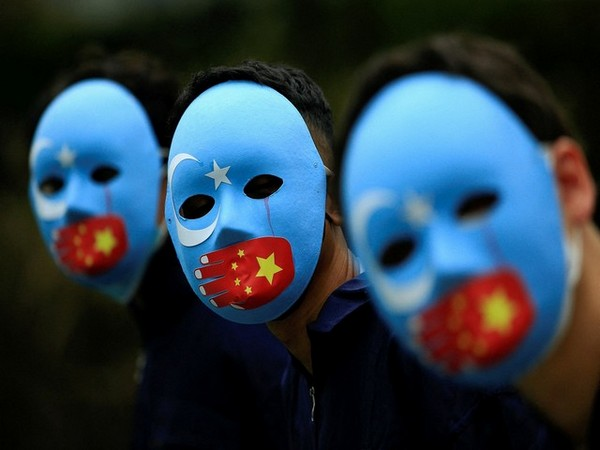Global Outcry Against China's Alleged Genocide and Resource Exploitation in Xinjiang
Human rights groups and political leaders demand action against China's 75-year campaign of genocide and resource plundering in Xinjiang. The Chinese Communist Party is accused of mass killings, cultural annihilation, and forced labor, exploiting the region's critical minerals. The international community calls for economic sanctions to address these serious human rights abuses.

- Country:
- United States
Global human rights organizations and politicians are escalating demands for accountability from China, accusing it of a prolonged 75-year campaign of genocide and resource exploitation in East Turkistan, known as the Xinjiang Uyghur Autonomous Region. The Chinese Communist Party faces allegations of mass atrocities, cultural erasure, and systemic forced labor while benefiting from the region's abundant strategic minerals, as highlighted by a report from Cfact.
Historical narratives reveal that China assumed control over the territory in 1949 following Soviet withdrawal, inheriting key infrastructure pivotal for mineral exploitation. Over subsequent years, China's government increased the Han Chinese demographic presence, from 4% in 1949 to 33% by 1964, while tapping into vital lithium, beryllium, magnesium, oil, and gas deposits. Since 2014, repression has intensified into what Uyghur independence leader Salih Hudayar describes as "full-scale genocide."
Abuses documented include the detention of over three million Uyghurs, Kazakhs, Kyrgyz, and other Turkic groups in state-run internment camps, mass sterilization, destruction of more than 16,000 cultural and religious sites, and widespread surveillance and sexual violence. The U.S. State Department's fact sheet from January 20 confirms over a million Turkic individuals are held in these camps. Meanwhile, Global Rights Compliance has identified 77 companies associated with forced labor in the region. A massive zirconium deposit crucial for technology and defense has raised global strategic concerns, notes the Cfact report.
Despite harsh criticism from Western countries and the UN, China retains its position on the UN Human Rights Council. Critics argue longstanding Western engagement, including welcoming China into the World Trade Organization, has prioritized economic gain over human rights, allowing such abuses to persist, as per Cfact's findings. Calls are growing for sanctions akin to the anti-apartheid boycotts against Chinese goods linked to forced labor. The Trump administration has initiated an investigation into critical mineral imports, while European nations rethink their reliance on cost-effective Chinese imports, particularly in the electric vehicle sector.
Advocates emphasize the need to lessen global dependence on Chinese supply chains to pressurize Beijing to halt its East Turkistan campaign. Without definitive economic and political measures, they caution, the Chinese Communist Party will persist in its demographic manipulation, cultural devastation, and resource exploitation against a populace never consenting to its rulership.
(With inputs from agencies.)
ALSO READ
Global Human Rights Concerns and Tibetan Struggles Highlighted at UNHRC
UN Human Rights Chief Urges Restraint Amid Nepalese Unrest
Global Human Rights at a Crossroads: UN Chief Raises Alarm
UN Human Rights Chief Denounces Israel's Actions in Gaza
Sri Lanka Opposes External Intervention at UNHRC Amid Human Rights Scrutiny










